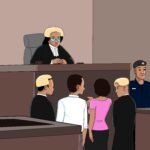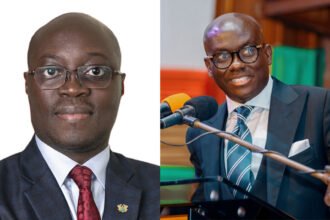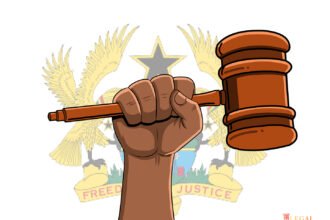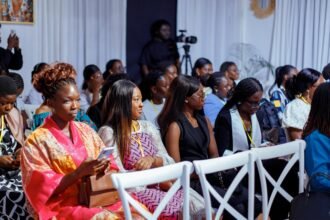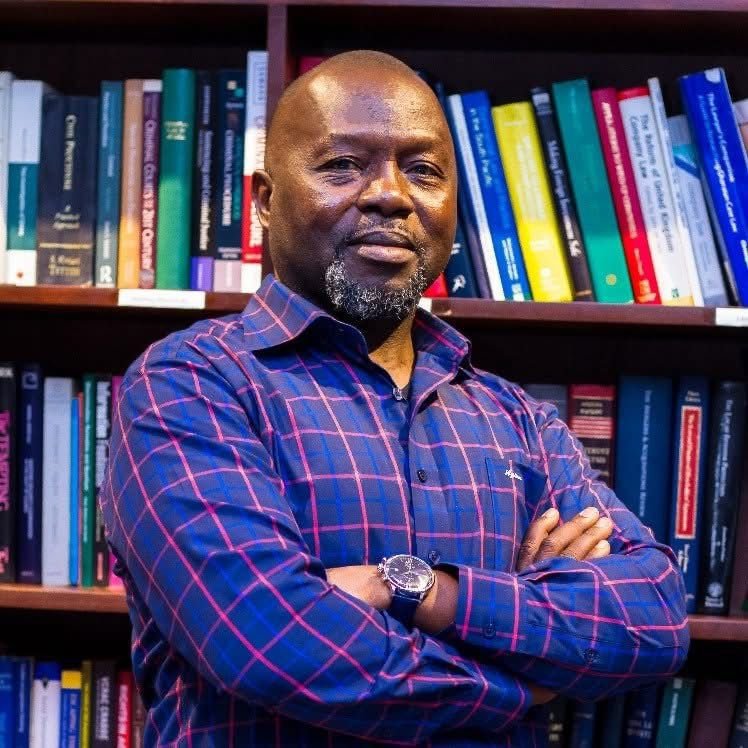
April 1, 2025
A. Summary of Facts:
On Thursday, March 20th, 2025, Mr. Kwabena Adu-Boahene, the immediate past Director-General of the National Signals Bureau (NSB) of the National Security Council, was arrested at the Kotoka International Airport by a team of investigators from the Economic and Organised Crime Office (EOCO).
The following day, March 21, 2025 his wife- Madam Angela Adjei Boateng was also arrested by EOCO.
These arrests followed investigations into the purchase of cyber intelligence equipment by the NSB, formerly known as the Bureau of National Communications (BNC), during Adu-Bohene’s tenure as the Director-General.
Recounting the facts leading to the arrest, the Attorney-General, Dr. Dominic Ayine, stated that EOCO received intelligence that Mr. Adu Boahene left Ghana for the UK and then to Dubai; and that suspecting an attempt to evade surveillance due to changes in his flight itinerary, a stop order was placed, leading to his arrest upon arrival on a British Airways flight.
The investigations according to the AG revealed that Mr. Adu Boahene, while serving as the director of BNC signed a contract on behalf of the government and the National Security Council with an Israeli company, ISC Holdings Limited, for a cyber defense system software at a cost of $7 million USD.
It is alleged that between February and March 2020, Mr. Adu Boahene allegedly transferred a total of 49 million Ghana Cedis from the national BNC’s accounts to the private BNC’s account, purportedly for payment to ISC Holdings. However, only the equivalent of $1.75 million USD (9.5 million Ghana Cedis at the time) was transferred to ISC Holdings.
The remaining amount, approximately 39.4 million Ghana Cedis, is alleged to have been used by Mr. Adu Boahene and his wife for personal ends, including investments in properties. Mr. Adu Boahene and his wife have therefore been held in custody pending investigations.
B. Key legal issues stemming out of the matters surrounding the arrest of Mr. Adu Boahene and Madam Angela Adjei Boateng:
1. Presumption of Innocence and Public Accusations
The arrest and the detailed press briefing by the Attorney-General have raised concerns about the presumption of innocence. The Attorney-General publicly presented a significant amount of details regarding the alleged financial impropriety and expressed confidence in securing a conviction even before formal charges were brought before a court.
The lawyers for Mr. Adu Boahene and Madam Angela Adjei Boateng, criticized this public approach taken by the Attorney General and have argued the pronouncements made by the Attorney-General are prejudicial and purport to pronounce Mr. Adu Boahene guilty even before preferring charges against Mr. Adu Boahene and his wife.
The Deputy Attorney-General, Justice Srem-Sai however defended the Attorney-General’s stance, arguing that an Attorney-General always has a position on a case they intend to prosecute and asserts their belief in their ability to secure a conviction.
Martin Kpebu, a legal practitioner, acknowledged that public discussion before trial is a “price we have to pay in a democracy” when individuals are entrusted with public office or public funds.
Despite the public pronouncements and details shared by the Attorney-General, the legal principle of the presumption of innocence dictates that Mr. Kwabena Adu Boahene is considered innocent until proven guilty beyond a reasonable doubt in a court of law. See article 19 2 (c) of the constitution 1992.
In giving recognition to the notion of Constitutional presumption of innocence, the Supreme Court in the case of Okeke v. The Republic (2012) 41 MLRG 53 at 61-62 speaking through Akuffo JSC ( as she then was ) held that;“…The citizen too is entitled to protection against the State and that our law is that a person accused of a crime is presumed innocent until his guilt is proved beyond reasonable doubt as distinct from fanciful doubt”.
In the midst of all these, it should equally be stated that inasmuch as an accused person has the right to declare and insist on his innocence during investigations and even before his his trial, it should equally not prevent criminal investigations by the police and the belief of the State and its prosecutors that they have a strong case or evidence against an accused person and the basis of their belief to obtain a conviction.
2. BAIL VARIATION AND DUE PROCESS:
On March 28 2025, an Accra High Court, on the application of the Kwabena Adu-Boahene has reviewed his bail conditions. The ruling followed a legal contest between counsel for the applicants and the Attorney General, who opposed any variation of the existing bail conditions.
The competing argument for and against the grant of bail should be understandable as an accused person does not have an automatic right to be granted bail in that the State or prosecution cannot just expect an accused to be refused bail because they oppose the application.
That is why the Supreme Court in Gorrman v. The Republic (2003-2004) 2 SCGLR 784, explained that, “the presumption of innocence in Article 19(2) of the 1992 constitution was a necessary but not sufficient ground for the grant of bail’.
After considering the submissions of both parties, the court exercised its discretion and ruled as follows:
1. The bail conditions for the first applicant were modified, requiring him to provide security in the sum of GHS 80 million, with two sureties, one to be justified.
2. The bail conditions for the second applicant remained unchanged at GHS 80million without justification
3. Both applicants were granted permission to travel, subject to obtaining express authorisation from the Economic and Organised Crime Office (EOCO).
4. The applicants were mandated to report to EOCO three times per week for a duration of three weeks.
These are early days in the case which has undoubtedly gripped the attention of many a Ghanaian together with the accompany bits of sensationalism.
What is important- and indeed the expectation- however is that we would have have a Judiciary that would be fair and impartial arbiter to handle the hearing and proceedings and ultimately come out with a decision that is fair and just and accords with due process.
Keep following for more updates.





